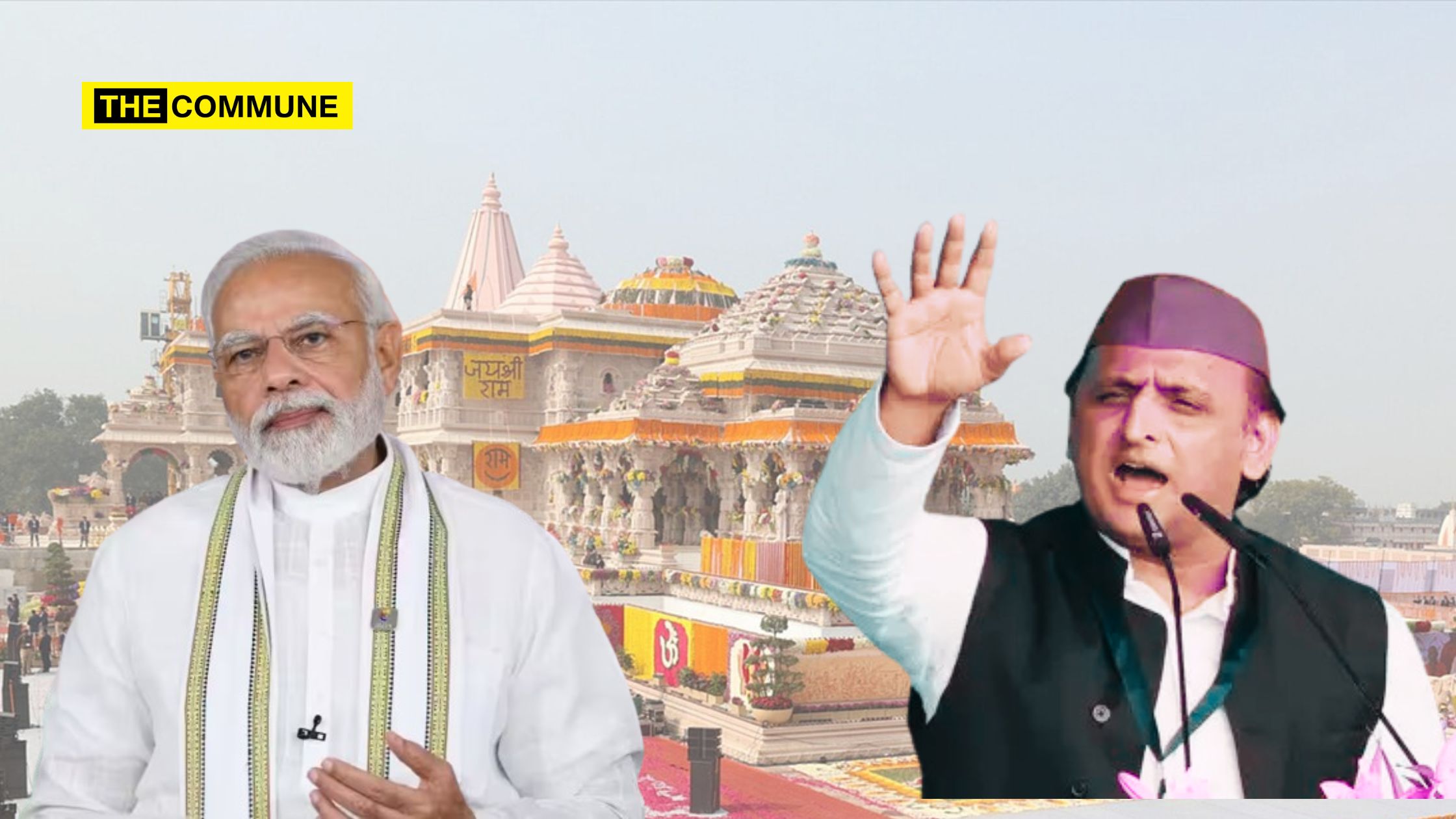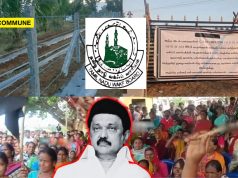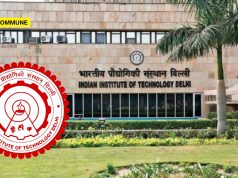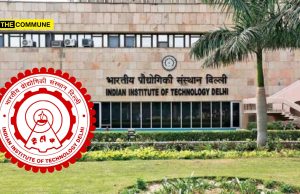
The recent Parliamentary election results threw up several surprises – the most interesting one was how UP voted. Out of the 80 seats in UP, the BJP did win 33 seats but the surprise came in the form of 37 seats to the Samajwadi Party (SP). And what was even more baffling was that Faizabad (Ayodhya) voted for SP rather than the BJP.
Here are some of the reasons for the electoral setback for BJP:
A viral video from around the time of the Pran Prathishta ceremony of Ram Mandir is being reshared on social media and it points out the situation of the small traders and businesses in Ayodhya. In the video, a barber (Sonu Sharma) breaks down saying that despite being involved in the Ram Mandir construction through kar seva, they are facing harassment and displacement due to the ongoing development by the temple authorities. Specifically, Sharma says he (as other small traders) is being asked to pay ₹15 lakhs to rebuild their demolished shops, followed by a monthly rent of ₹5,000 with a 25% increase every 3 years. As Sonu laments, “They are asking for ₹15 lakhs. The temple people are asking. For the temple…whoever doesn’t have ₹15 lakhs, they will have to stay like this only.”
Sharma, despite having an EWS and disability certificate has not received any of the welfare schemes announced by the government – be it a house through PM AWAS Yojana or anything else. Sharma says, “We have the certificate but no facilities. No housing either.”
Pandit Sonu Sharma who works as a Barber cries in front of us while explaining his hardships in Ayodhya. His story has gone viral on social media. You can watch his full interview covered by our team. Tap on the link to see the whole video: https://t.co/xheJNmsCpn pic.twitter.com/KSesqGtLRs
— Shubham Sharma (@Shubham_fd) January 29, 2024
Some of the other reasons that are being put forth include:
Sitting MP and Ayodhya/Faizabad BJP candidate Lallu Singh made a controversial remark during the poll campaign about needing a two-thirds majority to alter the Constitution, which raised fears about the erosion of reservation benefits for marginalized communities.
आज अंबेडकर जयंती है।
परसों मोदी जी ने कहा था कि स्वयं अंबेडकर जी भी आ जाएँ तो भी संविधान नहीं बदल सकते।अब अयोध्या से भाजपा के वर्तमान सांसद लल्लू सिंह खुलेआम कह रहे हैं संविधान बदलना है इसलिए 400 सीटें जीतनी होंगी।
मोदी जी इन्हें दिल से माफ़ कर पाएँगे? pic.twitter.com/y6UdLj3uNf
— Pawan Khera 🇮🇳 (@Pawankhera) April 14, 2024
Resentment among local residents and small business owners due to the demolition or displacement of over 4,000 shops for road-widening work related to the Ram temple, with inadequate compensation and rehabilitation measures.
Mismanagement and inconveniences caused by the hurried inauguration of the Ram temple, such as restricted vehicular movement and the need to walk long distances to access public transportation.
Failure to deliver anticipated economic benefits from the influx of pilgrims, with only larger businesses and outsiders profiting, while local small business owners struggled.
Perceived insensitivity towards local sentiments and sacrifices made for the temple movement, with the BJP leadership lauding Iqbal Ansari (a Muslim litigant in the Babri Masjid-Ram Janmabhoomi dispute) while ignoring those who actively participated in the Ram Janmabhoomi movement.
Anger among the BJP cadre over the conferral of the Padma Vibhushan on Mulayam Singh Yadav, who had ordered firing on kar sevaks in 1990.
BJP gave Padma Vibhushan to Mulayam Singh Yadav who opened fire on kar sevaks and forgot Veer Savarkar and Bala Saheb Thackeray: Sanjay Raut pic.twitter.com/5xtpahJ1Xk
— Megh Updates 🚨™ (@MeghUpdates) January 29, 2023
The BJP’s unexpected electoral defeat in Ayodhya can be attributed to several factors as listed above but especially, their failure to address the pressing concerns of the local populace. While the construction of the long-awaited Ram temple evoked a profound sense of pride and fulfillment, ironically, for many residents of Ayodhya, it does not have the same meaning given that their livelihood is affected. It makes it all the more significant to have a ear to the ground, to have a hand on the pulse of the people to understand their emotions and needs and address them correctly.
Subscribe to our channels on Telegram, WhatsApp, and Instagram and get the best stories of the day delivered to you personally.




